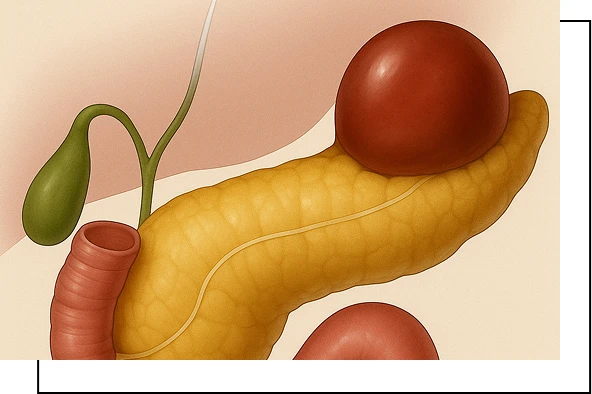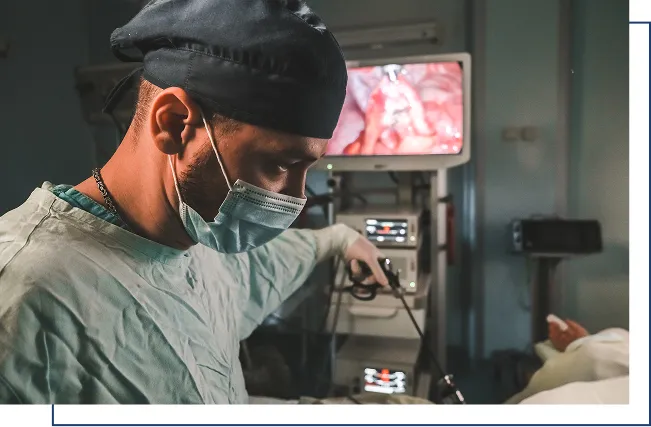Pancreatic Pseudocyst Treatment in Kolkata
Home > Pancreatic Diseases > Pancreatic Pseudocyst
Overview
A pancreatic pseudocyst is a fluid-filled sac in or around the pancreas, often resulting from pancreatitis or abdominal trauma. Unlike true cysts, pseudocysts lack an epithelial lining. These can vary in size and severity, with some resolving on their own while others require medical intervention. Let Dr. Debjoy Sau, a renowned pancreas cancer surgeon in Kolkata, guide you through comprehensive treatment options.

Symptoms of Pancreatic Pseudocyst
Nausea and vomiting
Loss of appetite
Persistent upper abdominal pain
Fever if infection develops
Feeling full after eating a small amount of food (early satiety)
Jaundice (yellowing of the skin or eyes)
Feeling full after eating a small amount of food (early satiety)
Jaundice (yellowing of the skin or eyes)
Note: If the pseudocyst becomes infected or ruptures, symptoms may worsen, including fever and sharp, sudden abdominal pain. Get immediate medical attention from Dr. Debjoy Sau, a well-reputed pancreatic cyst treatment doctor in Kolkata.
Book An Appointment
Causes and Risk Factors
The most common cause of pancreatic pseudocysts is pancreatitis. Other causes include:
Acute or chronic pancreatitis
Pancreatic injury and abdominal trauma
Blocked pancreatic duct
Previous history of pancreatic surgery
Risk Factors
History of pancreatitis and gallstones
Alcohol abuse (a major risk factor for pancreatitis)
Evaluation
Get an expert evaluation from Dr. Debjoy Sau, a well-reputed pancreatic fistula surgeon doctor in kolkata
Ultrasound, CT scans, and MRI imaging
Blood tests for pancreatic enzymes
Endoscopic ultrasound
Physical examination

Management
Endoscopic or surgical drainage like pancreatic pseudocyst gastrostomy
Percutaneous drainage
Surgical intervention for large or complicated cases
Pancreatic pseudocyst antibiotics if infection present
Book An Appointment
FAQs
Know Your Answers
How urgent is pseudocyst treatment?
Immediate attention is needed if you have severe pain, fever, or difficulty eating. These symptoms suggest possible complications.
Can a pancreatic pseudocyst go away on its own?
Small cysts under 5cm may resolve naturally within 4-6 weeks with monitoring and dietary changes.
What happens if a pancreatic pseudocyst ruptures?
Rupture can cause severe complications requiring emergency surgery. Get early medical intervention to prevent such risks.
How is a pseudocyst different from pancreas cancer?
Pseudocysts are benign, fluid-filled sacs, while cancer involves malignant tumor growth in the pancreas.
What are the complications of untreated pseudocysts?
If you leave it untreated, pseudocysts can lead to infection, rupture, hemorrhage, or compression of nearby organs.

